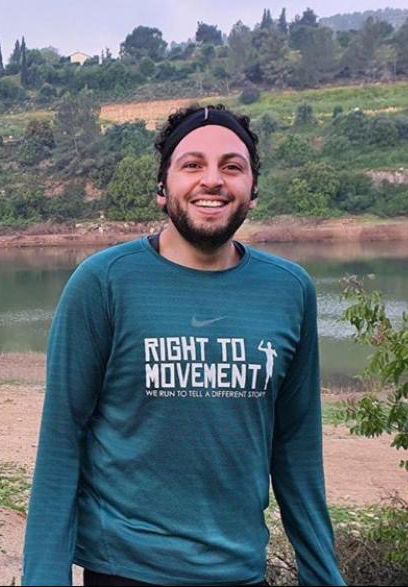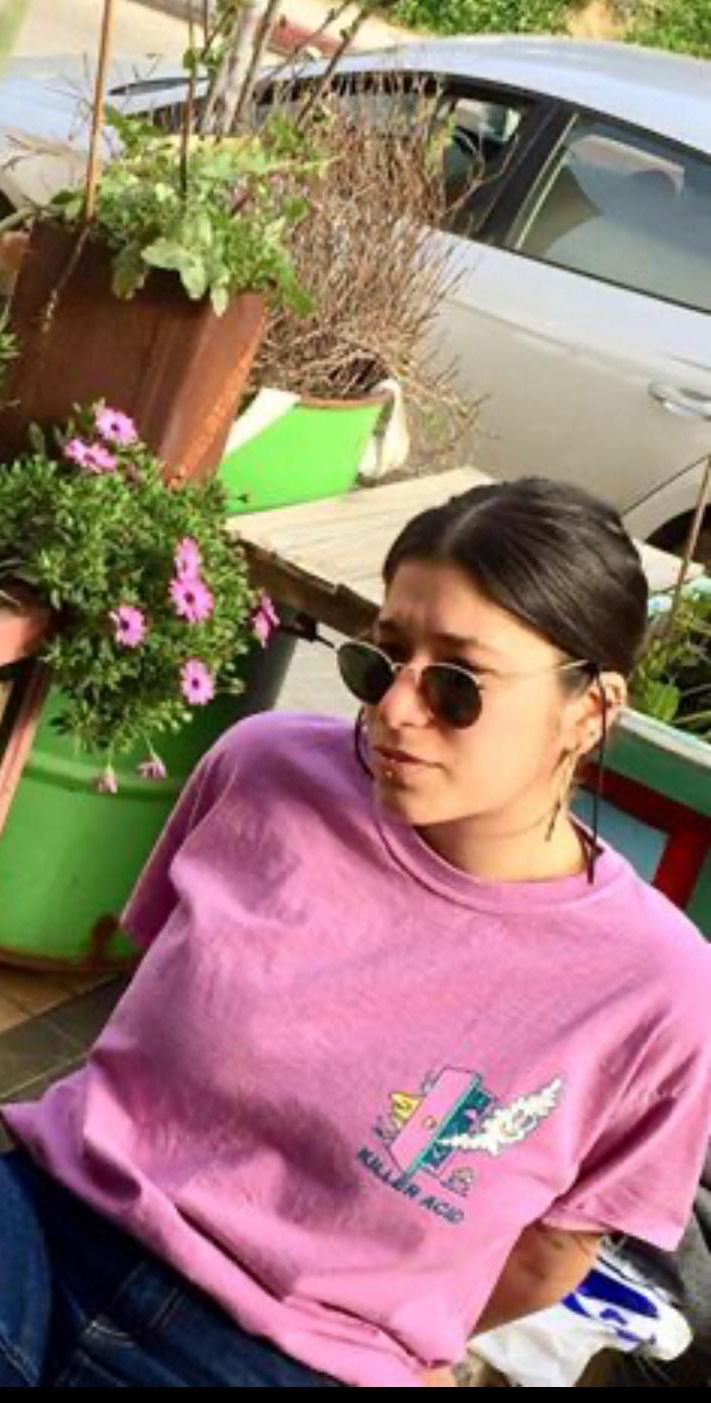Mental Health: Coronavirus Lockdown and Occupation in Palestine
In the Occupied Palestinian Territories (OPT), movement restrictions and lockdowns are not unfamiliar to most. Indeed, during the height of the Second Intifada, many Palestinians couldn’t leave their homes, under threat of death. Palestinians battle the need to live their lives as normal as possible under the most abnormal conditions imposed by the Israeli settler-colonial regime. Israeli checkpoints, military bases, and illegal settlements and settlers surround Palestinian cities, making movement within Palestine difficult, dangerous, and too often deadly.
These conditions, of course, affect each individual differently, but in thinking about mental health challenges in Palestine, it is virtually unanimous that the underlying cause is living under an apartheid state. Sumud صمود, or steadfastness, is a collective ideology of resilience and resistance practiced by Palestinians.
Covid-19 has brought a new set of lockdowns that has compounded the life of confinement already experienced by Palestinians under occupation. Beginning on March 9th, 2020, Palestinian cities were placed under lockdown, with Palestinian checkpoints at the entrance of towns and villages, in addition to the Israeli checkpoints surrounding cities. Palestinian cities across the West Bank have officially re-opened since, but we spoke with Palestinians there about their lives under the Covid-19 lockdowns, and how they found resilience to deal with their psychological impact.
Note:
* We only spoke with Palestinians in the West Bank; the situation in Gaza under Israel’s suffocating blockade differs immensely.
Milad, Ramallah
There was never a reason to address mental health in my society or my surroundings as we thought it would resolve on its own, but I ended up all on my own facing the feeling of being useless, unproductive, and all over sad. However, this individual mental trip I took gave me some sort of belief and strength as now I feel better than before and I want to face it. I want to face my problems or any kind of issues I face in the lockdown.
It was an experience for me as I had gotten to know my family all over again because we are just sitting here and observing and as my life's routine with work, education, and people fade away. The secondary, materialistic problems kind of went away as I ended up noticing what matters and realizing how important it is to do something about it, instead of procrastinating on taking care of our own mental health.
Life went on here in Ramallah, there were visits, kids on the streets, long walks, rushing to the supermarket to grab whatever we wanted. It was normal for me to see this, it was normal for my parents to stock up food and necessities, as Palestinians we already experiencing a lockdown and this pandemic was no different. We didn't visit the beach regardless of whether we had a permit or not, as we again stick together and life goes on.
Tayma, Jerusalem/Ramallah
Firstly, of course, coronavirus has affected all of us, but especially people with Jerusalem ID’s who live or work in the West Bank, or vice versa. It has been more difficult to go back and forth since there have been more restrictions. And since there were more cases in Israel, they really restricted movement between the two, like for me and my parents for example. Secondly, for university students, like me or people who work, all these restrictions changed our routines and we were not able to go anymore. These changes, for me at least, left me in depression for two months. Problems arose with my parents, my boyfriend, my friends, my cousins. For any reason, it was easy to start a problem with others. At first, you think, “I have all this free time now,” but I found myself just sitting at home for hours on the phone or watching Netflix, which didn't make me feel good, sitting around all day. It wasn't until later I found that this is going to be the norm, being at home, I needed to do something to keep myself busy, like studying and reading, which helped me a lot. I read 2.5 books during the first 3 months of the lockdown.
Palestine is already an exceptional case, for people with Palestinian ID’s, they are already in lockdown, you can’t go to Jerusalem and Israel without a permit, and with the coronavirus lockdown, it became worse for us. I, for example, live in Rihan (a neighborhood 10 minutes from Ramallah), and you couldn’t even leave without trying to sneak past checkpoints (internal Palestinian checkpoints). We would drive around the back roads trying to avoid them, just so I could visit my cousins.
Yousef, Kufr Ni’ma
The situation is different here. For me, I think, for us Palestinians, anxiety became not exactly a part of our identity, but like it’s something in us. There is always something uncertain. Tomorrow is the nearest future, and it’s blurry. That’s how I see the situation, and with the coronavirus, for me in the beginning it felt good honestly. I managed to feel space and everything was calm, but what’s before the storm? I think a lot of people were optimistic that it wouldn’t last more than a month. That was the situation. But also the economic situation of the country did not make you feel like you could do this and stay home and follow the rules. If you are not financially secure, imagine how much of an impact it had on your mental health. I managed to save, but I did not imagine I would need to save for this situation. I thought it would be towards something fun. I don’t have my family here, I had to take care of myself, my family lives in Brazil. It’s much easier to be closer to your family, that did not exist with me and left a big space of wondering. I live alone, but have social connections and try not to stay alone and when you find yourself alone, it brings back some bad memories for me, where I used to suffer from insomnia, and it came back.
The cities always had noise and were suddenly quiet, it didn't feel right. You are in space by yourself and talking with yourself. The human brain is a very powerful thing, you can control it and it can control you, you know?
I live in a village that’s in areas B and C, so there was no way the Palestinian police could deal with the situation here. The people did, they did an overwatch group, it was young people that made checkpoints at the front and back ends of the village. That was dealt with for a while, but some of the young people went too far with it, they felt authority and power and immediately wanted to practice it. But not all of them, definitely, so that was something interesting, and people became aware and put a stop to it.
Musa, Bethlehem/Jerusalem

I moved from Bethlehem to Jerusalem because I had to pass 3 checkpoints every morning. I moved back to my parents. It normally takes 15 minutes, but it would take me an extra half hour to get through the checkpoints. The Israeli checkpoints were manageable, they normally accepted my permits, but the Palestinian checkpoints took longer because they had to bring someone to translate my papers because they are in Hebrew. The fact that there was a total lockdown and I was alone most of the time, I couldn't even walk my dog, I felt lonely and stressed in the beginning. There was the pressure of not knowing when you can get food, or you can't work out or do the simplest things. Also, I am a pharmacist so all my friends know I work with patients, so my friends were even more distant toward me. The fact that I was living in Bethlehem meant that I was forced into a 14-day quarantine due to the tourists in the city who had coronavirus, so that’s when I went to Jerusalem, instead to quarantine at my parents’ house.
All of March I was in Bethlehem and left for Jerusalem in April when the lockdown was at its height. It was stressful going through the checkpoints because I worked every day. First with the Palestinian checkpoints, then with the Israelis, who were suspicious because I was coming from Bethlehem. Aside from this, I was happy to drive to work because there was no traffic and because I was working, unlike a lot of people. I was happy to come home and be alone and focus on myself. I liked that I didn't have any obligations toward my friends to go out or be social.
Maisaa, Ramallah

Initially, it was an exciting event. We were getting so hyped up over finding out we have one case; or just really intrigued by going through a pandemic not really understanding what it is. Or what the consequences will be. However, when the lockdown started that’s when things felt serious. I’m a very social and outgoing person; and having to stay indoors with no end in sight was confusing. So we loaded up on alcohol and socialized at home. Not really understanding what they meant with social distancing or why it’s necessary.
Working from home was depressing; I couldn’t get any work done and I lost all sense of responsibility. Not being able to go out or go on with my life as I am used to it made me realize that I’m going to have to sit with my thoughts and face them. Which made me look for an escape: alcohol. But then realizing that this was going to go on for a while, I realized that I cannot continue my life like that. And I took to going for long walks, working out from home, cooking, adopting a puppy, going to the mountains, and reading. When things started opening up again, I went back to my normal routine of going to the mountains and reading. So I adopted a somewhat healthy lifestyle which I know now I had within me. The only thing about this though, is our cities were locked down, so you're always having to think about sneaking into the mountains or a route away from the checkpoints to get outside just to breathe a little, is of course frustrating.
